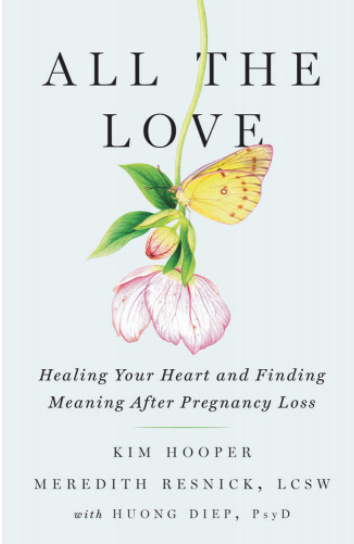Grief Does Not Exist Without Love
Sharing lessons learned from loss to help us navigate the unknown.
This week we are honored to welcome back guest Pauser and licensed clinical social worker Meredith Resnick.
I am no stranger to grief. I don’t think anyone is.
I watched my parents and my brother die. I watched friends die, too. I also worked in hospice and witnessed the decline of my patients. I have sat at bedsides and held hands. I’ve thought about grief a lot and in many different ways.
Some grief was easier to process. As a daughter, the death of my mother was somewhat easier because I was 42. When my father died I had only just turned 30 and despite being a social worker, I was scared by his anger right up until the end. He was only 74 and did not want to die.
Yet over the years, I began to see that, at least with older adults, some (not all) were ready for the transition. They found agency in the process or they simply went along with it. (I put my mother in this category: she had dementia and I think that contributed to her not being afraid.) Their body was ready to release the soul, and their soul was ready to untether. There was a kind of flow to this, a path. It was easier on the loved one, too.
All of this fit into a certain calculus. But that changed for me on the day I was sent to the home of a young couple whose infant was placed on pediatric hospice. The child was only a few months old. To this day, nearly two decades later, I remember the darkened room, and in the corner a heap of unboxed baby goods: high chair, playpen, collapsible crib. I remember the father, his thousand-foot stare. And the mother, clutching a teensy washcloth, pink, for a girl. Their quiet tears as we stood in a semi-circle around the bassinet. This is when I understood, though it took me years to form the words to describe it, that to witness another’s grief is a privilege. And to show your grief is a gift.
When my friend experienced four consecutive pregnancy losses that included two ectopic pregnancies and one second-trimester miscarriage, I was reminded of that young couple, forced to surrender to among the worst of life’s events. My friend suffered every single Mother’s Day during that time, and no one could tell her what was “right” or how she was “supposed” to experience her grief. Sometimes it was sadness, other times anger, disbelief, numbness, confusion or a combination. In the end, it was all that it needed to be.
Time passed and I recently co-authored a book about that time, entitled All the Love: Healing Your Heart and Finding Meaning After Pregnancy Loss. Writing specifically about miscarriage deepened my perspective on grief and love in ways I never imagined — ways that have been brought to bear time and time again in this time of crisis and loss.
As we wade into another year of this protracted pandemic, I share these lessons and how they have helped me navigate the unknowns we’re currently living with as well as process the losses we’re experiencing all too regularly.
Understand that grief does not exist unless love existed in some form first.
People will have opinions about how you’re grieving, processing, even thinking about your loss — and they will likely share them with you whether you want to hear them or not. Get used to saying, “Thanks, but no thanks” if you don’t want to hear it.
Showing your grief in public is a kind of service. Our results-driven society gets abysmal scores for coping with grief. By going public and talking about yours — even a little, and when you are ready — is not only good for your soul but a kind of public service as well.
Remember that you will experience grief in different ways on different days.
Stay attuned to yourself and how you’re feeling. If your grief lingers or doesn’t improve, as may happen during grief, seek help from a licensed therapist or consult your physician for a referral to one who can help.
One More Thing
With every move forward, you also encounter what I think of as a complementary reaction to your own growth. The excitement about something new might trigger a kind of unconscious reminder of the loss, like Oh, I’m so excited about this because I’ve been sad for so long.
You think about your happiness in relation to your sorrow. In a tender way, it’s almost as though the grieving part of ourselves wants to be remembered, too, even as we identify less and less with the pain we endured.
— Meredith Resnick, All the Love
Meredith Resnick is a writer, editor and licensed social worker. Learn more about her here and learn more about All the Love here.
If I leave you it doesn't mean I love you any less
Keep me in your heart for a while
— Keep Me in Your Heart, Warren Zevon





